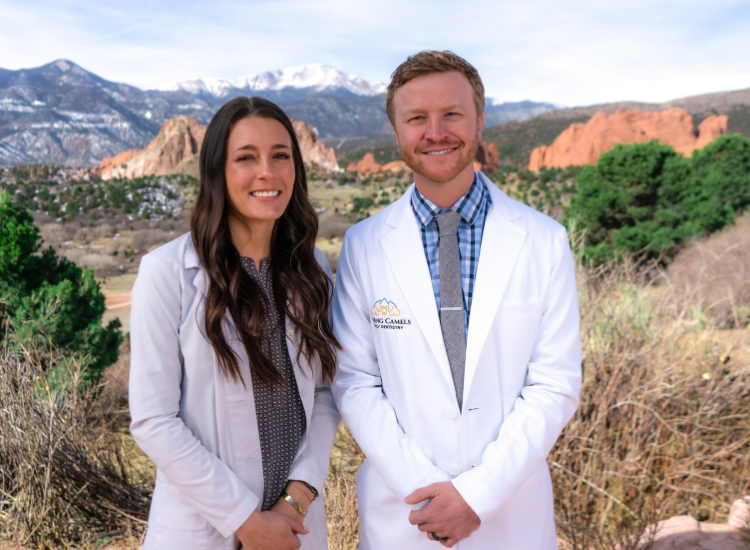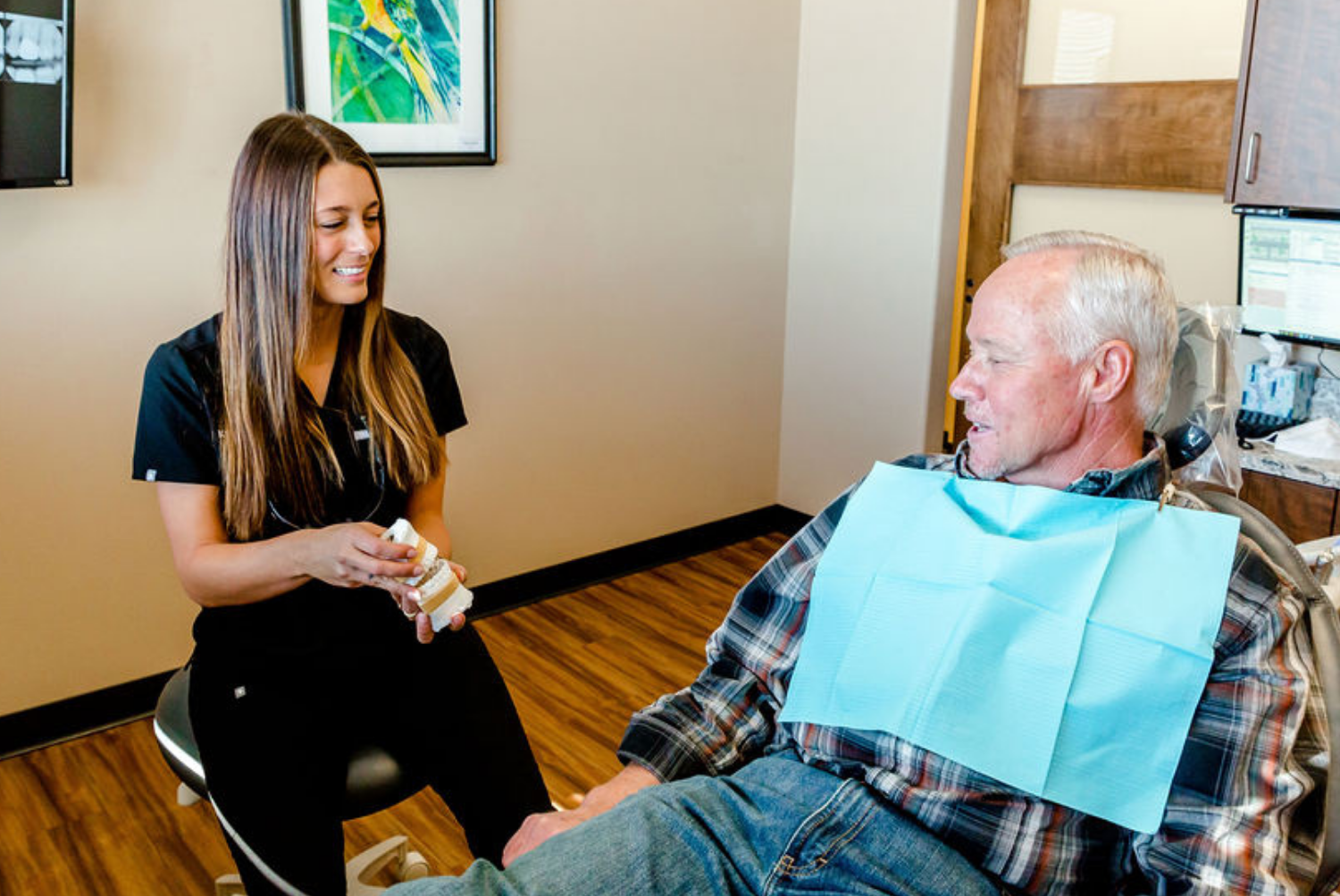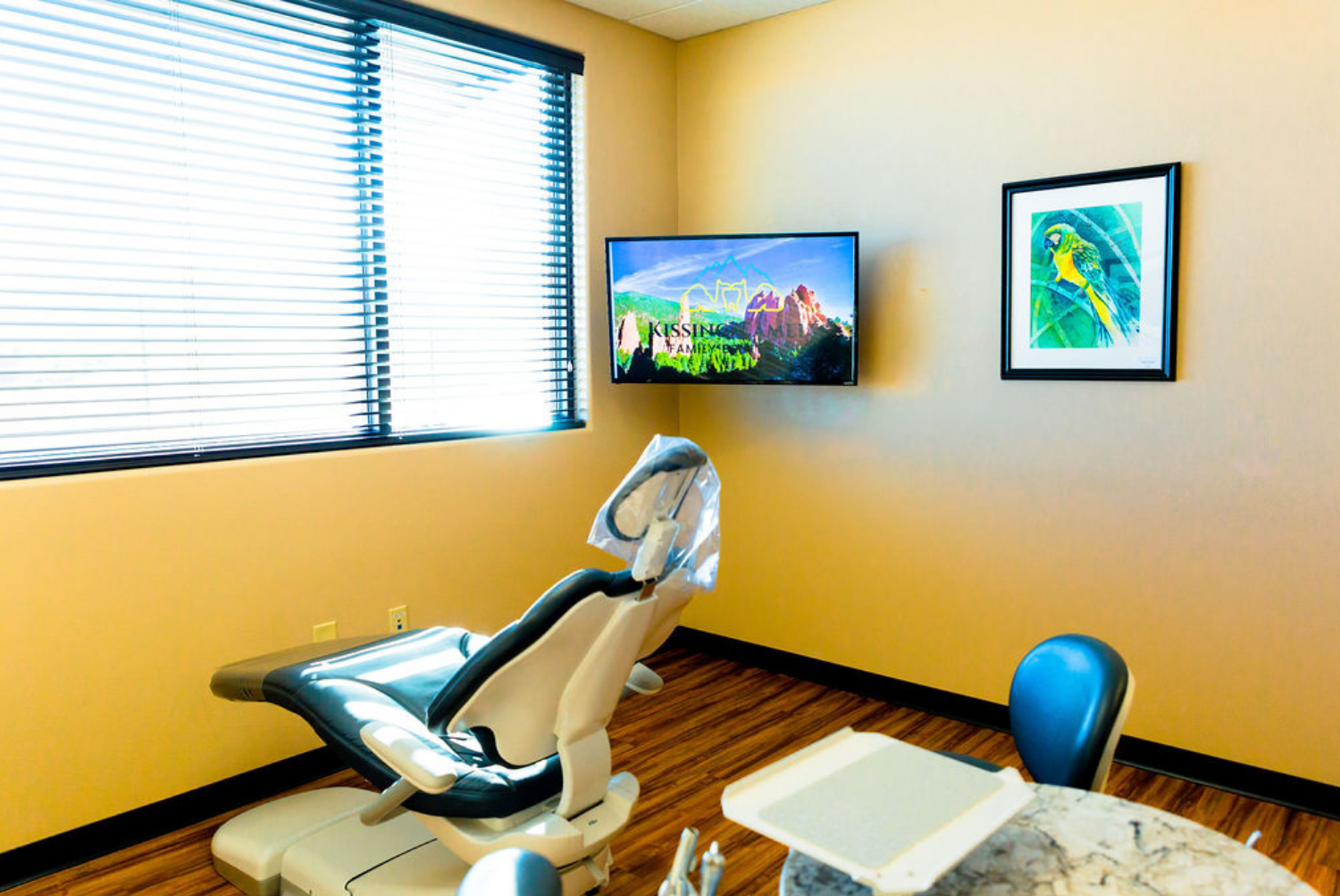Choosing A Dentist For The Whole Family
Benefits Of Choosing A Family Dentist In Colorado Springs
Ever wonder if you need a separate dentist for the kids and adults in your family? At Kissing Camels Family Dentistry we are passionate about being your one-stop shop for your whole family. Family dentistry is an important aspect of oral health care, addressing the unique needs of patients at all stages of life. Children, in particular, require fun and engaging dental care. We believe kids need to learn to love going to the dentist early.
As a Family Dentist in Colorado Springs, CO, our staff is trained to understand and manage the unique needs of children, providing a comprehensive range of services to support healthy dental habits. Whether it’s ensuring that baby teeth come in properly or assisting with the removal of shark teeth, we are here to help. A family dentist is an essential partner in promoting overall oral health and well-being. Early dental care will help protect your child’s long-term oral health and give them a bright smile for life. So, if you’re looking for a family dentist who is committed to your child’s oral care and wellness, look no further Kissing Camels Family Dentistry is skilled and welcomes new patients. With compassionate care and cutting-edge technology, they will be there to support you at every stage of your child’s development.
The Benefit Of Choosing A Family Dentist
We all know the importance of regular dental care for people of all ages. Choosing a family dentist for the whole family can save you time and money in the long run. By visiting one dentist who is equipped to treat patients of all ages and with a range of different needs and requirements. The patient can avoid visiting multiple dental offices to take care of their entire family’s dental needs. Whether the patient needs veneers, or implants, or simply wants to focus on maintaining good dental hygiene, they can find everything they need under one roof at their family dentist.
Additionally, by going to the same dentist for all their oral health needs. The rest of their family can benefit from any treatment recommendations or preventive measures that are implemented for one member. Stuart dentist believes choosing a family dentist provides long-term benefits for both the individual and the whole family.
Contact Kissing Camels Family Dentistry Today!
When looking for a dentist nearby, know what a family dentist can help the patient and their entire family. This is the first step toward early detection, prevention, treatment, education, and ease of use for the family’s oral hygiene. Our team is standing by ready to answer any questions you may have.





